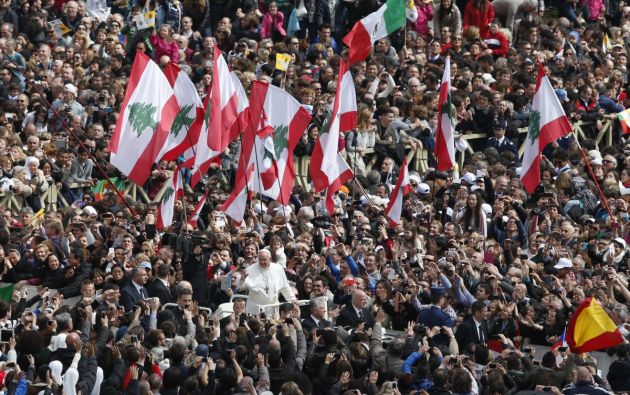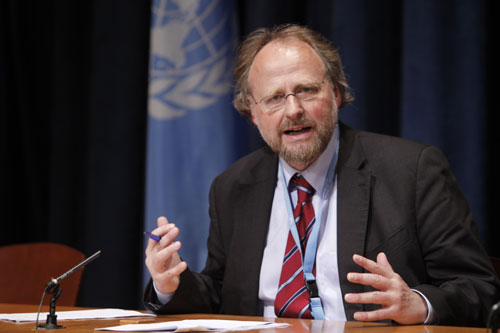UN religious expert praises 'ray of hope' Lebanon for religious diversity

The United Nations Special Rapporteur on freedom of religion or belief has praised Lebanon's unique tradition of religious diversity whereby Christians and Muslims have lived together for a long time.
Heiner Bielefeldt said that country is particular in the Middle East region, and he urged the Lebanese people to protect and preserve it.
He said, "The most striking feature of Lebanon is its tradition of religious pluralism, which makes the country unique, in particular in the Middle East, but also beyond this region.
"Over centuries Lebanon has been home to various Christian and Muslim communities."
The country's constitution provides for freedom of conscience and the free exercise of all religious rites within the general framework of public order.
"Diversity as well as freedom of religion or belief must be preserved and further developed in order to build resilience against the spiralling religious extremism in the Middle East region," the U.N. expert said.
He was speaking in Beirut at the end of an 11-day official visit to the tiny nation sandwiched between Syria, Jordan and Israel.
'RAY OF HOPE IN THE REGION'
"In face of the challenging time, Lebanon could be the ray of hope in the region and beyond for as long as it preserves and promotes its legacy of religious diversity," noted Bielefeldt.
Some people asked him why he chose Lebanon while some neighboring countries face massive violence with obvious sectarian dimensions.
The situation for religious communities in the tiny nation sandwiched between Syria, Jordan and Israel by and large amicable.
"People largely practice religion freely and no religious persecution is taking place in this country.
"Lebanon has successfully managed to keep the society together, across religious boundaries and to build resilience against the virus of religious extremism."
The main purpose of his visit had been to better understand what facilitated Lebanon's accomplishments.
He also wanted to find what could be taken to further strengthen peaceful interreligious coexistence of people across the broad range of confessions.
The U.N. expert said that Christian denominations include Catholic, Orthodox, Oriental and Evangelical communities.
He noted that the Catholics comprise Greek Catholics, Chaldeans, Armenian Catholics, Latins and in particular the Maronite Church, which has its worldwide centre in Lebanon.
Among Orthodox Churches, Greek Orthodoxy is the by far most populous one.
Lebanon is also home to Oriental churches - Assyrians, Syriac Orthodox, Armenian Apostolic, Copts, which have distinct traditions.
The majority of Evangelical churches - Episcopals, Presbyterians, Baptists, Seventh-Day Adventists, different free churches and others - cooperate within the Supreme Council of the Evangelical Community.
"Whereas some Christian communities have existed in Lebanon since the origins of Christianity, others entered the country in the 19th and 20th centuries.
"The wealth of Christian liturgies (including liturgical languages), ceremonies and canon law traditions constitutes a particular Lebanese legacy."
Muslims comprise Sunnis, Shiites, Alawites and Druze.

Similar to the Christians, Lebanon's Muslim population is internally more pluralistic than in any other country of the Middle East.
"Different schools of sharia - in particular Hanafi and Ja'afari - exist in parallel.
"Under the wide umbrella of Shia-Islam, followers of Twelver Shia, Ismaelis and Alawites represent distinct groups, who maintain their specificities in teaching and practice, while all of them regulate their personal status issues within the Ja'afari (= Twelver Shia) court system," notes Bielefeldt.
The Druze combine traditional Islamic teachings with certain philosophical ideas and mystic practices whilst having their own religious court system.
The country has a small community of Jews, comprising not much more than 100 people.